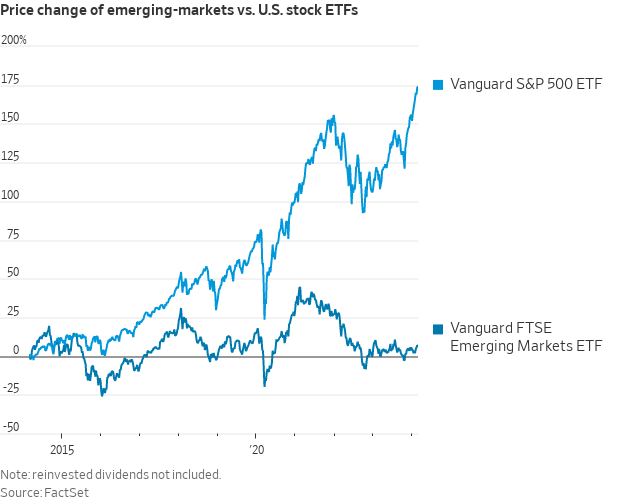While the question depends on each individual’s investment goals and financial plan, investment returns are something that cannot be disputed. To go further, the word “diversification” often comes up when market participants, or even licensed advisors, start talking about emerging markets (Brazil, Russia, India, China, South Africa, etc.). While exposure to these markets does increase investment portfolio diversification, it doesn’t necessarily provide insulation from adverse market events (geopolitical in nature) or provide additional return.
The Proof
The funnel of capital into emerging markets funds, or even individual market leaders, has never made much sense in our opinion due to the tradeoffs in return. When investing in emerging markets, one is most often increasing diversification while decreasing overall returns. As a matter of fact, the increase in diversification to emerging economies actually increases the risk of poor performance. This is due to the fragile economic structures of those nations (Brazil) and geopolitical uncertainty (Russia and China).
After viewing the graphic above it’s clear to see that investing in an emerging markets ETF over an S&P 500 ETF would have cost a market participant dearly. Over the last 10 years, the Vanguard S&P 500 ETF returned approximately 175% while the associated emerging markets ETF provided a single digit return. After accounting for inflation, especially that of the last couple years, the emerging ETF definitely lost its holders money (purchasing power).
Furthermore, as if that wasn’t already concerning enough, holders of the S&P 500 ETF paid just 0.01% (MER) in fees per year while holders of the emerging markets ETF paid 0.25% (MER) per year. Investing abroad in developing nations may have its time and place but its not as an alternative to S&P 500 index funds, at least not in our opinion.

